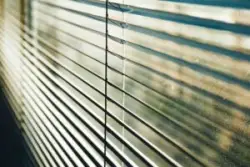
When an individual suffers a personal injury on someone else’s property, deciding how to proceed can feel overwhelming. Read on for what to do after suffering an injury on someone else’s property.
Premises Liability Defined
The concept of premises liability is based on the notion that any property owner has a responsibility to keep their property in a reasonably safe manner, and to warn any invited guests about potential hazards and risks of personal injury if they are present on the property.
This responsibility is often referred to by personal injury attorneys as the “duty of care.” For invited guests such as friends and family, the property owner has a duty to warn of any potential hazards on the property. For “licensees,” which the law regards as anyone who is invited onto the property for a specific purpose, the duty of care typically extends only to activities related to the visit. For example, electricians on the property should be made aware of any hazards regarding the location and nature of their work on the property.
Trespassers present an interesting situation as it relates to premises liability and the property owner’s duty of care. In most situations, property owners are only responsible for warning trespassers of hazards on the property if the trespasser is a child. This is intended to keep children from undue harm on private property, regardless of their clearance to be there.
Building a Premises Liability Case
In order to be successful in litigation and recover financial compensation for damages incurred, a plaintiff and their personal injury attorney must prove a number of items to the court. First and foremost, the plaintiff must prove that the defendant in the case is the owner of the property or is in control of the property where the accident occurred. This is typically an easy thing to verify, as deeds or leases are commonly available forms of property records for the courts to review.
The plaintiff must also show that they were on the property with the defendant’s consent at the time of the accident. Proving this requirement will take different forms depending on whether the plaintiff was a social guest or a worker such as a mail delivery person or handyman.
The plaintiff must show that a dangerous condition exists on the premises and the property owner either caused the condition, knew of it, or should have known about its existence. Finally, the plaintiff must prove that the aforementioned dangerous condition was the cause of their injuries.
Proving Negligence
The value of a personal injury attorney lies heavily in their ability to help regular citizens build a comprehensive case before going to personal injury court. To accomplish this goal, legal counsel must be able to prove that the property owner was negligent in their failure to carry out their duty of care. Plaintiffs and their personal injury attorney must prove negligence by a preponderance of evidence. In other words, they must prove that it is more likely than not that the defendant’s negligence via breach of their duty of care caused the accident to occur.
Professional Counsel in Nevada
For years, the attorneys at H&P Law have been helping accident victims in Las Vegas and throughout Nevada fight for fair compensation for injuries. Contact H&P Law today for insight into your case.




